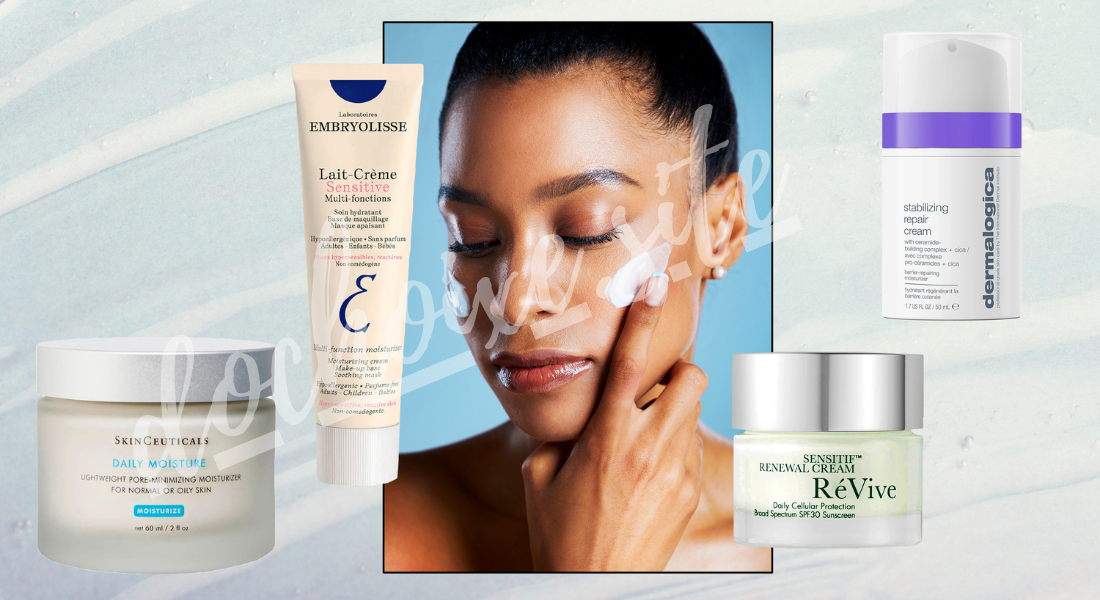Discover the best sensitive skin cream options for hydration and soothing relief. Learn what ingredients to look for and how to build a skin care routine that protects delicate skin.
Finding the right sensitive skin cream can feel challenging, especially when your skin reacts easily to new products. Sensitive skin requires a gentle touch, with products formulated to hydrate, protect, and calm irritation without causing additional stress. The right cream can make all the difference, helping you achieve a balanced, comfortable complexion. Let’s dive into what makes a great sensitive skin cream, from key ingredients to application tips, so you can enjoy skin that feels nourished and refreshed.
1. Understanding the Needs of Sensitive Skin
Sensitive skin is more reactive to environmental stressors and certain ingredients, often leading to redness, irritation, or dryness. Factors like weather, pollution, and even hormones can impact how sensitive skin feels and looks. Using the wrong products can exacerbate these issues, making skin feel tight or itchy. That’s why a carefully chosen sensitive skin cream is essential. The right cream provides a protective barrier, locking in moisture while soothing any redness or discomfort.
2. Key Ingredients to Look for in a Sensitive Skin Cream
A high-quality sensitive skin cream contains ingredients that are soothing, hydrating, and free from irritants. Here are some ingredients known for their gentle, effective care:
- Aloe Vera: Known for its calming properties, aloe vera soothes irritation and reduces redness, making it ideal for sensitive skin.
- Hyaluronic Acid: This hydrating ingredient helps retain moisture, ensuring that your skin stays soft and plump without clogging pores.
- Colloidal Oatmeal: A natural anti-inflammatory, oatmeal calms irritation, making it a popular choice in creams for sensitive skin.
- Chamomile: With antioxidant and anti-inflammatory benefits, chamomile can help reduce redness and promote a balanced, calm complexion.
- Ceramides: These lipids strengthen the skin’s natural barrier, protecting it from environmental stressors and locking in hydration.
When choosing a cream, look for formulas with these ingredients to ensure your skin gets the best care without irritation.
3. Avoiding Common Irritants
Some ingredients in skincare products can trigger irritation in sensitive skin, so choosing a sensitive skin cream means knowing what to avoid. Fragrances, alcohol, and harsh preservatives can often cause reactions, leading to dryness, itchiness, or breakouts. It’s best to choose fragrance-free products and avoid creams with parabens or sulfates, which can strip skin of its natural oils. For those with highly sensitive skin, simpler formulas with fewer ingredients are often the best choice.
4. Hydration Without the Heaviness
Sensitive skin creams should provide ample hydration without feeling heavy or greasy. Ingredients like glycerin and squalane are lightweight yet hydrating, locking in moisture without clogging pores. A well-formulated cream will absorb quickly, leaving your skin feeling soft and comfortable rather than oily. This lightweight hydration is especially beneficial for sensitive skin, as it avoids the common issue of clogged pores that can lead to breakouts or irritation.
5. Calming Irritation and Redness
One of the main goals of a sensitive skin cream is to calm irritation and reduce redness. Ingredients like green tea extract and licorice root have anti-inflammatory properties, helping to soothe any inflammation. These ingredients work together to restore a balanced skin tone, leaving your complexion looking calm and refreshed. For people dealing with redness, a sensitive skin cream that includes calming botanicals can be transformative, helping the skin look and feel more even over time.
6. How to Choose the Right Sensitive Skin Cream for Your Type
Sensitive skin can be dry, oily, or a combination, so selecting a cream that suits your skin type is essential. For dry sensitive skin, choose a cream with richer emollients like shea butter or jojoba oil. For oily sensitive skin, a gel-based or water-based cream with ingredients like hyaluronic acid offers hydration without a heavy feel. Combination skin can benefit from a balanced formula that includes both hydrating and calming ingredients. Choosing a cream tailored to your skin type maximizes its benefits and helps avoid potential irritation.
7. The Importance of a Protective Barrier
Sensitive skin is more prone to losing moisture and becoming irritated by environmental factors. A sensitive skin cream with ingredients like ceramides and fatty acids helps create a protective barrier that shields skin from pollution and weather changes. This barrier strengthens the skin, reducing the likelihood of future irritation and providing lasting comfort. For those with easily irritated skin, a strong barrier is key to maintaining a balanced, healthy complexion.
8. Application Tips for Maximum Benefit
How you apply your sensitive skin cream makes a difference. Start with clean, slightly damp skin to help lock in moisture more effectively. Gently massage the cream into your skin using upward strokes, taking care around sensitive areas like the eyes. Avoid rubbing too harshly, as this can irritate sensitive skin. By applying the cream gently, you allow the ingredients to penetrate effectively, giving you the best results.
9. Morning and Night: Building a Routine
Incorporating a sensitive skin cream into both your morning and nighttime routines ensures your skin stays hydrated and protected throughout the day. In the morning, a lightweight cream provides a smooth base for makeup while keeping skin calm. At night, a slightly richer cream can restore moisture lost during the day. A consistent routine helps reinforce your skin’s natural defenses, ensuring it remains balanced and healthy over time.
10. Benefits of Using a Sensitive Skin Cream Long-Term
With regular use, a high-quality sensitive skin cream can improve your skin’s resilience and overall health. Sensitive skin often struggles to retain moisture and bounce back from irritation, but a well-formulated cream addresses these issues, promoting a more balanced complexion. Over time, you may notice fewer breakouts, less redness, and a smoother texture, as the cream helps strengthen your skin’s natural barrier.
11. Choosing the Right Brand for Sensitive Skin
Not all skincare brands cater to sensitive skin, so finding a brand known for gentle, effective products can make a difference. Brands like La Roche-Posay, Avene, and CeraVe are known for their dermatologist-tested formulas, free from common irritants and designed specifically for delicate skin. These brands have built their reputation on catering to sensitive skin, making them a solid choice for anyone seeking reliable care.
12. Sensitive Skin Cream and SPF: A Perfect Pair
Sun protection is essential for sensitive skin, which can be more reactive to UV rays. Some sensitive skin creams include SPF for added protection, while others are best paired with a gentle, fragrance-free sunscreen. By combining your sensitive skin cream with an appropriate SPF, you protect your skin from sun damage and maintain its health. This extra layer of care ensures that your skin remains comfortable and protected, even on sunny days.
Conclusion: Find Relief and Balance with the Right Sensitive Skin Cream
Sensitive skin deserves special attention, and the right cream can make a world of difference. With ingredients that hydrate, soothe, and protect, a well-chosen sensitive skin cream supports your skin’s natural balance and resilience. From calming irritation to building a protective barrier, the best creams offer gentle yet effective care that keeps your complexion looking healthy and feeling comfortable. By choosing the right product and using it consistently, you can enjoy soft, calm skin every day, even with the challenges that sensitive skin can bring.

